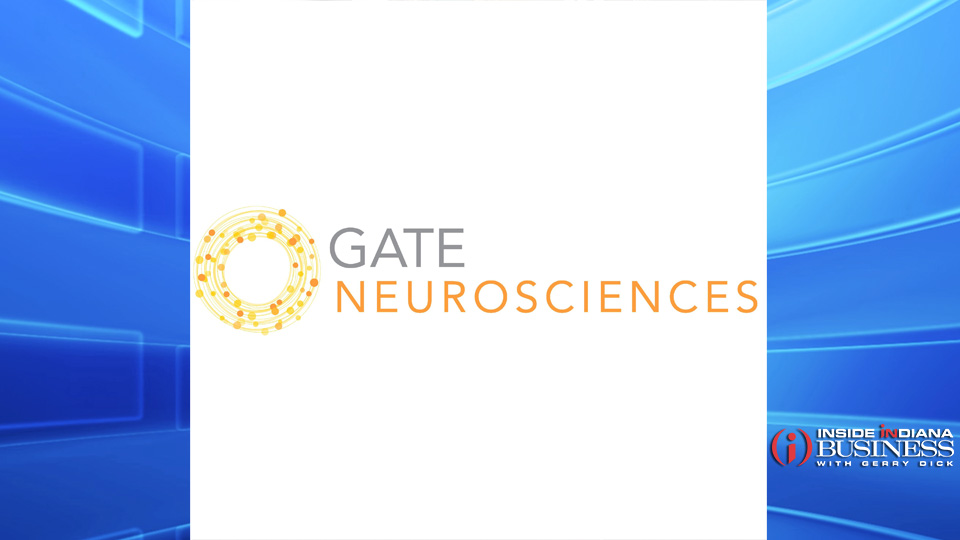Paradigm Shift in Depression Treatment Inspires Startup
Subscriber Benefit
As a subscriber you can listen to articles at work, in the car, or while you work out. Subscribe Now
In the same way that precision medicine has revolutionized the treatment of cancer, it could also radically improve how patients are treated for depression, says Carmel-based startup Gate Neurosciences Inc. In oncology, precision medicine enables doctors to analyze the biology of the patient’s tumor, then prescribe drugs that are most powerful against that specific type of tumor. Similarly, Gate Neurosciences says neuropsychiatry is on the cusp of unleashing the power of precision medicine, and a $15 million boost will advance its two lead drug candidates designed to “massively change treatment” for patients with depression.
Led by a Hoosier-heavy team, including Eli Lilly and Co. alumni and former Indiana University School of Medicine leader and researcher Dr. Anantha Shekhar, Gate Neurosciences says the neuropsychiatry space—and especially depression treatment—is hungry for innovation.
“It’s a terrible, terrible [treatment] path for most patients dealing with this disease,” says Gate President and Chief Executive Officer Michael McCully. “Neuropsychiatry is a segment that has had large pharmaceutical interest moving away from it in the last 20 years; that was exemplified when Lilly exited the space in 2017. But there’s still opportunity to move forward with some really exciting next generation opportunities, and that’s what Gate was founded to pursue.”
McCully says the current standard of care is doctors blanket prescribing Prozac or Wellbutrin, which are in a class of drugs that takes four to 14 weeks for people to feel improvement and is only effective for a little more than half of patients. McCully says patients also suffer through common side effects, such as weight gain and sexual dysfunction.
In contrast, Gate’s two lead assets, which have completed initial Phase 2 clinical studies, are rapid-acting. The startup says one of the candidates is designed for acute care when a patient may be suicidal, for example, and shows effect within 24 hours. The other lead program is taken orally, and both are in a class of drugs that has been shown to avoid common side effects.
“It’s a major paradigm shift for the patient, who has had to show up and effectively run a one-man clinical trial over a two-year period hoping to get some treatment benefit,” says McCully. “We have opportunities with what we’re developing to be able to rapidly get a signal of efficacy, and safely do it, with the goal of being able to get patients into ‘remission.’”
Gate Neurosciences also describes itself as a “next generation neuroscience company,” because its drug candidates rely on precision approaches. McCully says the central nervous system (CNS) has been a “black box about how to treat it,” much like cancer was before oncology shifted to precision medicine.
“Typically for depression, you’re asking somebody, ‘How do you feel today?’ And that’s the basis for measuring what your disease state is. That’s really challenging. That’s not like analyzing your tumor or taking a blood test and looking at your genetics,” says McCully. “[Neuropsychiatry] is now moving toward precision. There’s a better understanding of the physiological path, a better understanding of what the disease state looks like and the ability to match that with a particular mechanism of action we think works directly against it.”
McCully believes Gate is “at the beginning of this next wave of new therapies” that will use the power of patient selection to deliver better results.
“There’s a whole spectrum of where depressed patients fall. Previous studies we’ve done with our particular mechanism [have shown] a really strong effect on anxiety and insomnia measures,” says McCully. “So that’s people who have problems with depression, but also problems with anxiety and insomnia; that’s roughly half of depressed patients.”
In addition to the $15 million investment in 2021, the startup is pursuing another “major transformative transaction” this year and plans to move at least one of its drug candidates into a confirmatory phase 2 study.
“[This class of drugs] represents such an exciting opportunity to improve the lives of a lot of patients, family members and caregivers in psychiatric and mental health disorders. The whole family suffers when these episodes are happening,” says McCully. “We have a very passionate team in this area; all of us have personal stories that we have experienced through family members and loved ones. We know the need, and we’re really excited to take these molecules forward in an effort to try to improve that.”
McCully shares the strategy behind the startup’s Indianapolis location, and says Gate is weighing public versus private options moving forward.
